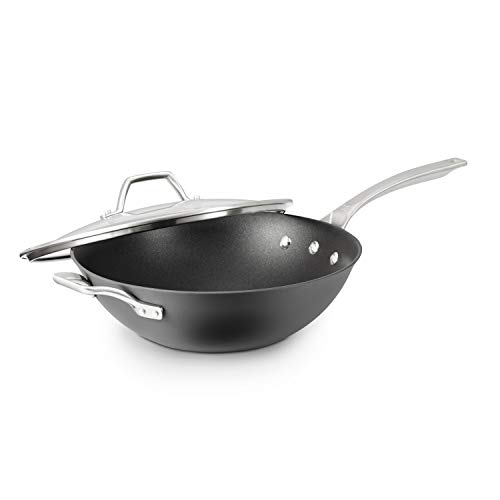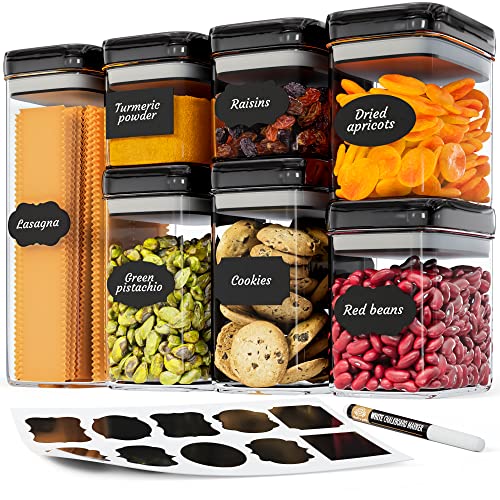Seasoning a non-stick wok is a topic that many home cooks are curious about. While traditional cast-iron or carbon steel woks require seasoning to create a natural non-stick surface, non-stick woks are coated with a layer of non-stick material such as Teflon. This coating is designed to provide a non-stick surface without the need for seasoning.
Many people wonder if they still need to season a non-stick wok to improve its non-stick properties or to enhance its performance. In this article, we will explore the necessity of seasoning a non-stick wok and whether it is recommended or even possible to do so.
Reasons for seasoning a non-stick wok
Seasoning a non-stick wok is important for several reasons:
-
Enhances non-stick properties: Seasoning helps to create a natural non-stick surface on the wok, making it easier to cook and clean.
-
Improves flavor: A seasoned wok can enhance the flavor of the food by creating a layer of oil and seasoning that adds depth to the dishes.
-
Prevents rusting: Seasoning helps to protect the wok from rust and corrosion by creating a protective layer on the surface.
-
Increases durability: Properly seasoned woks are more resistant to scratches and damage, thus increasing their lifespan.
By seasoning your non-stick wok, you can ensure better cooking results and prolong the life of your cookware.
Benefits of seasoning your wok
Seasoning your non-stick wok has several benefits, including:
| Enhanced Non-Stick Properties | When a non-stick wok is properly seasoned, it develops a natural non-stick coating that enhances its cooking performance. This makes it easier to stir-fry and prevents food from sticking to the surface. |
| Improved Flavor | Seasoning your wok can enhance the flavor of your dishes by adding a slight seasoning to the metal, which can subtly flavor your food as it cooks. |
| Protection Against Rust | Seasoning creates a protective layer on the surface of the wok, which helps prevent rust and corrosion, increasing the wok’s lifespan. |
| Easy Cleaning | A seasoned wok is easier to clean, as the natural non-stick coating reduces the amount of food residue that sticks to the surface, making it simpler to wash and maintain. |
Proper method for seasoning a non-stick wok
Seasoning a non-stick wok is not necessary, as the non-stick coating already prevents food from sticking to the surface. However, if you still prefer to season your non-stick wok, you can follow these steps:
- First, wash the non-stick wok with warm soapy water and dry it completely.
- Next, apply a thin layer of vegetable oil to the surface of the wok using a paper towel.
- Heat the wok over medium heat for a few minutes to allow the oil to penetrate the surface.
- Remove the wok from the heat and let it cool completely.
- Wipe off any excess oil with a paper towel.
Remember, although seasoning a non-stick wok is optional, it can help prolong the life of the non-stick coating and enhance its performance. Make sure to follow the manufacturer’s instructions for your specific non-stick wok to avoid damaging the coating.
Frequency of seasoning a non-stick wok
How frequently you need to season your non-stick wok largely depends on how often you use it. If you cook with your wok regularly, it might be a good idea to season it every couple of months to maintain its non-stick properties. However, if you use your wok less frequently, you may be able to get away with seasoning it once or twice a year. Keep an eye on the condition of the non-stick coating and season as needed to ensure that your wok remains in top shape.
Common mistakes when seasoning a non-stick wok
Seasoning a non-stick wok is important, but there are some common mistakes that people make when trying to do so. Here are a few things to avoid:
- Using cooking sprays or aerosol oils for seasoning, as they can leave a sticky residue on the wok.
- Not heating the wok properly before applying the oil, which can result in uneven seasoning.
- Skipping the cleaning step before seasoning, as any food particles left on the wok can affect the seasoning process.
- Using too much oil, which can lead to a gummy or sticky layer on the wok.
- Using abrasive cleaning tools or harsh chemicals on the wok after seasoning, as it can damage the non-stick coating.
By avoiding these common mistakes, you can ensure that your non-stick wok is properly seasoned and ready for use.
Best Oils for Seasoning a Non-Stick Wok
When it comes to seasoning a non-stick wok, choosing the right oil is crucial. Here are some of the best oils for seasoning a non-stick wok:
- Vegetable Oil: Vegetable oil is a popular choice for seasoning a non-stick wok due to its neutral flavor and high smoke point. It creates a durable seasoning that helps prevent food from sticking to the wok.
- Grapeseed Oil: Grapeseed oil is another excellent option for seasoning a non-stick wok. It has a high smoke point and a mild flavor, making it suitable for creating a non-stick surface on the wok.
- Canola Oil: Canola oil is a versatile oil that can be used for seasoning a non-stick wok. It has a high smoke point and a light flavor, making it a practical choice for creating a non-stick coating.
Regardless of the oil you choose, it’s essential to heat the wok thoroughly and apply the oil evenly to achieve a smooth and effective seasoning. By using the right oil and following the proper seasoning process, you can ensure that your non-stick wok is ready for all your stir-frying adventures.
Tips for maintaining a seasoned non-stick wok
Seasoning a non-stick wok can help enhance its non-stick properties and prevent food from sticking to the surface. Here are some tips for maintaining a seasoned non-stick wok:
- Hand wash only: Avoid using abrasive sponges or harsh cleaning agents to clean your wok. Instead, use a soft sponge and mild dish soap to hand wash it after each use.
- Avoid high heat: While non-stick woks are designed to withstand high temperatures, it’s best to avoid cooking at extremely high heat to preserve the seasoning.
- Use wooden or silicone utensils: Metal utensils can scratch the non-stick surface of the wok, so opt for wooden or silicone utensils instead.
- Re-season as needed: Over time, the seasoning on your non-stick wok may wear off. When you notice food starting to stick to the surface, it’s time to re-season the wok to restore its non-stick properties.
FAQ
Do I need to season a non-stick wok before using it?
No, you do not need to season a non-stick wok before using it. Non-stick woks are already coated with a non-stick layer, so seasoning is not required. You can start using your non-stick wok right away without any additional preparation.
Can I season a non-stick wok if I want to?
Technically, you can season a non-stick wok if you want to, but it is not necessary. The non-stick coating on the wok is designed to provide a non-stick surface without the need for seasoning. However, if you prefer the traditional method of seasoning, you can still do so, but it may not have a significant impact on the wok’s performance.
What are the benefits of seasoning a non-stick wok?
The benefits of seasoning a non-stick wok are minimal, if any. Since non-stick woks are already coated with a non-stick layer, seasoning may not improve their performance in a significant way. However, some people believe that seasoning can create a more natural non-stick surface and enhance the flavor of the food, but the difference may be subtle.
How do you season a non-stick wok?
If you still choose to season a non-stick wok, you can do so by applying a thin layer of oil to the wok’s surface and heating it over medium-high heat for a few minutes. Then, wipe off the excess oil with a paper towel and let the wok cool. However, keep in mind that this process may not have a substantial impact on the wok’s non-stick properties due to the existing non-stick coating.
Is it safe to use a non-stick wok without seasoning it?
Yes, it is perfectly safe to use a non-stick wok without seasoning it. Non-stick woks are designed to be used without the need for seasoning, and the non-stick coating provides a safe and effective cooking surface. You can use your non-stick wok right out of the box without any concerns about safety or performance.







